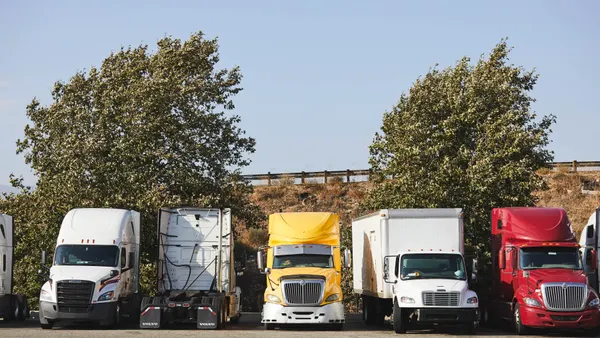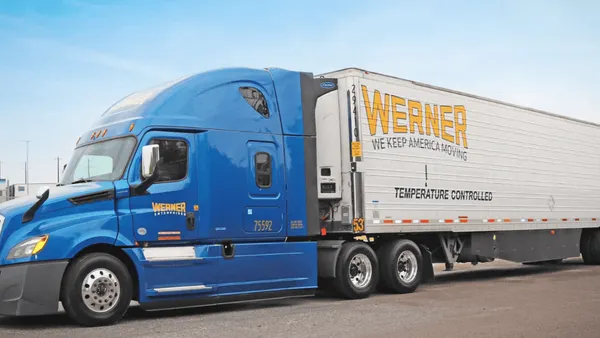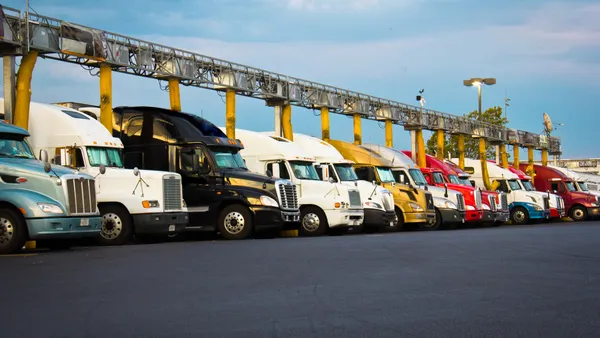Dive Brief:
- J.B. Hunt is targeting dedicated contract services and private fleet conversions as its biggest growth opportunities, Chief Commercial Officer and President of Highway Services Shelley Simpson said during Baird's Industrial Conference last week.
- In terms of annual fleet growth, J.B. Hunt is typically in the range of 800-1,000 trucks, according to Nick Hobbs, president of dedicated contract services. "I'm very comfortable and continuing on with that number for the next two or three years," he said during the Baird call.
- J.B. Hunt set a record in a recent month for the number of engineering design requests it received, as private fleets began conversion discussions, according to Hobbs. Private fleets don't generally have the same flexibility that dedicated fleets do to redirect assets when the market swings, as it has during the pandemic.
Dive Insight:
Pandemic-driven lockdowns forced some private fleets to sit idle, and Hobbs said at least two of J.B. Hunt's customers in that situation watched as the carrier redirected assets to segments where volume was plentiful.
"They really saw a bit of the diversity that we can bring in across industries. So, COVID really illustrated our strength. And so, we got a lot of momentum in customers because of what we're able to do," Hobbs said on the call.
J.B. Hunt structures its dedicated deals in such a way that, if a customer has a truck sitting in the lot with no loads, J.B. Hunt can use it for another fleet, Hobbs said. And in return, J.B. Hunt will give that customer a credit. When business returns, the truck will be available to its owner.
Transport America also recently announced it would work to become more competitive in the dedicated space. The carrier said Friday it is adding dedicated TL capacity after experiencing "accelerating customer desire" for committed capacity and experienced drivers.
Hobbs also said the need for drivers is a motivating private fleets to begin discussions about conversion. When trucks sit idle, the company is still responsible for the drivers and that can cost money and hurt retention. And, if business surges, the driver shortage makes it difficult to recruit.
"We're starting to see some pressure on the driver sign-on bonuses and some pressure on ground driver pay in our dedicated segment as well," Hobbs said, though he added that J.B. Hunt's driver turnover is the lowest it has ever been for the company.
That pressure is industry wide as fleets as they compete for the same pool of available CDL holders. Heartland Express announced this month it would bump pay by up to 12.2%. Schneider upped its driver pay in September, giving new team drivers with at least one year of experience an increase of 4 cents per mile and drivers with less than a year of driving experience a 2-cent increase.
"As the economy slowly recovers, freight volumes will rise and drivers will become an increasingly precious commodity," according to a September report by U.S. Xpress. "In recent months, the industry has seen significant increases in driver turnover, which is exacerbated by lower CDL school enrollment and the recently launched Drug and Alcohol Clearinghouse." The carrier predicted driver wages would increase this year by as much as 15%.











